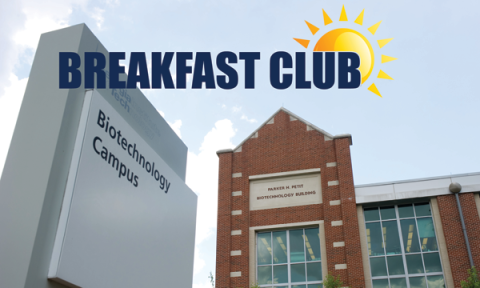event
Breakfast Club Seminar Series
Primary tabs
"Exploring Lymphatic Function: An Engineered Toolbox to Shed Light on Nature’s Invisible Vessels"
Brandon Dixon, PhD
Assistant Professor
George W. Woodruff School of Mechanical Engineering
Abstract
Proper lymphatic function is essential to a variety of important physiologic processes including immune cell trafficking, lipid absorption, and the regulation of fluid balance. However, the experimental difficulties associated with making actual measurements on lymphatics have slowed our understanding of these processes. In vitro experiments on isolated primary lymphatic endothelial cells or lymphatic muscle cells remove the cell from its native biological and mechanical microenvironment, making the interpretation of results challenging. In vivo experiments, on the other hand, often require highly invasive and terminal procedures to access the vessels. In this talk I will describe several experimental platforms we have developed to assist in both of these issues. By culturing cells in microenvironments that more accurately recreate their biophysical and physiologic surroundings, we seek to not only better recapitulate the in vivo state, but to explore how changes in this mechanical environment participate in the pathogenesis of lymphatic disease. Through the use of NIR imaging techniques, we can perform longitudinal studies on lymphatic function and measure lymphatic pumping pressure in a minimally invasive fashion. Finally, we have developed several approaches using a fluorescently-labeled fatty acid analogue to quantify the dynamics of lipid transport by lymphatics both in vivo and in vitro and have evidence that lymphatic transport of lipid is not the passive process that it has been historically regarded to be.
Bio
Dixon began at Georgia Tech in August 2009 as an Assistant Professor. Prior to his current appointment, he was a staff scientist at Ecole Polytechnique Federal de Lausanne (Swiss Federal Institute of Technology - Lausanne) doing research on tissue-engineered models of the lymphatic system. Dr. Dixon received his Ph.D. in biomedical engineering at Texas A&M University working in the Optical Biosensing Laboratory, where he developed an imaging system for measuring lymphatic flow and estimating wall shear stress in contracting lymphatic vessels. Dr. Dixon's current research focuses on developing imaging techniques and tissue-engineered model systems to enhance our ability to probe the underlying physiologic control of lymphatic pump function particularly as it relates to lipid metabolism and transport.
Status
- Workflow status: Published
- Created by: Colly Mitchell
- Created: 12/10/2012
- Modified By: Fletcher Moore
- Modified: 10/07/2016
Categories
User Data


